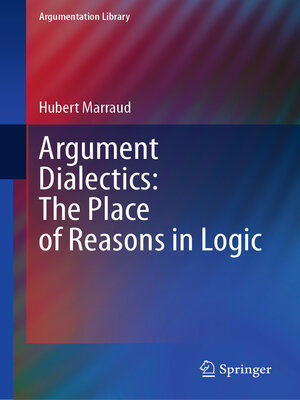
Sign up to save your library
With an OverDrive account, you can save your favorite libraries for at-a-glance information about availability. Find out more about OverDrive accounts.
Find this title in Libby, the library reading app by OverDrive.



Search for a digital library with this title
Title found at these libraries:
| Library Name | Distance |
|---|---|
| Loading... |
This book is a systematic exposition of Argument Dialectics (AD). Despite its name, argument dialectics is a logical approach to argumentation theory. AD stands out among theories of argument because of three unusual features: it is reasons-based, holistic and particularistic. This implies that AD conceives of logic as a theory of the dialectical construction of reasons, not as a theory of inferences. Consequently, contrary to other logical approaches, AD focuses on the study of inter-argumentative relations, especially those of opposition and weighing. The book makes an extensive use of the theory of reasons, a branch of metaethics that has been a very valuable quarry of intuitions and concepts for the elaboration of a reason-based theory of argument. The oppositions generalism-particularism and atomism-holism, proposed by Jonathan Dancy, which play a central role in the book and in the development of AD, have been adapted from the theory of reasons, and the same can be said of the distinction between different statuses of reasons that AD associates with different kinds of counterarguments. Conceiving of the theory of argument in terms of reasons has the effect of situating the paradigm of argumentation in practical argumentation/reasoning “about what to do” rather than in theoretical argumentation “about what to believe”, as inference-based theories do. Hence, this book is of interest to argumentation theorists, communication theorists, epistemologists, linguists, moral philosophers, and philosophers of law.







